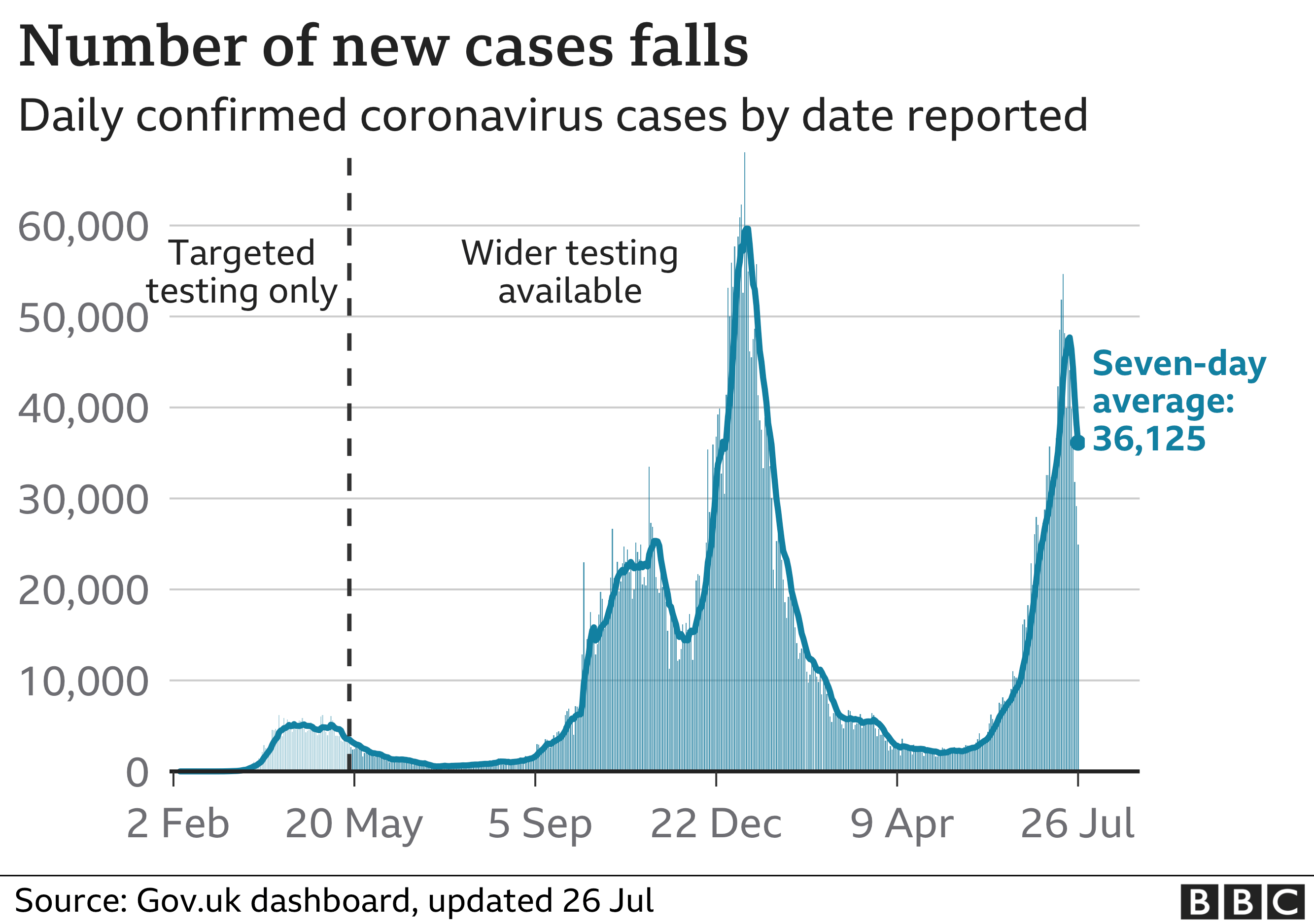The number of confirmed daily cases has fallen for seven days in a row to 23,501 before a slight uptick yesterday – now standing at 27,734. It’s little over a week since there were warnings we could reach 100,000 or even 200,000 cases a day. And unlike the previous two waves of Covid, it is happening without a national lockdown. Instead, we’re opening up. The turnaround is as surprising as it is welcome. So is it really happening? Has the third wave of Covid turned the corner in the UK? And does it mean we can think about life getting back to normal?

However, in this week’s update of the Zoe Covid-19 app released today, Professor Tim Spector covers the latest numbers and trends, including a discussion of why the Government’s confirmed cases have changed and differ from Zoe estimates of around 60,000 new cases per day. He also gives a first look at how ZOE contributors responded to the ‘pingdemic’ brought on by the NHS COVID-19 app.
We don’t know for sure what is going on, because there is always a difference between what can be measured in the data and what is really happening. So figuring it out is like assembling a pandemic jigsaw where multiple pieces of evidence combine to give us the true picture. A fall in laboratory-confirmed cases is only one (albeit major) piece in the jigsaw.
There are high levels of immunity in the UK now, due to a combination of vaccines (70% of the adult population have had both doses) and people who have had the virus. But we haven’t reached “herd” (or “population”) immunity – where so many people are immune that the virus struggles to spread. If that happened, then the growth in cases would be expected to gently slow down, level off, and then case numbers will start to fall.
Seven days’ worth of data is only six days and we don’t know what the coming weeks will show. One nagging question is around the number of tests taking place and whether we’re now “seeing less” of the pandemic. The average number of tests that took place last week is down around 10% on the week before, although the number of cases has fallen even harder. “After headlines about the ‘pingdemic’, I’m certainly aware of people turning the app off or not taking a test before a friend goes on holiday,” said Prof Donnelly. And schools closing also means children are no longer doing their regular rapid lateral flow tests.

We have not yet seen the impact of relaxing restrictions last Monday (19 July), which included reopening nightclubs in England. This is due to the long delay between people catching the virus, and then getting symptoms and testing positive. The end of this week is the earliest scientists expect to see the impact, but it could take longer as people may not have taken advantage of the relaxed rules until the weekend after 19 July. Click full data source.
So there we have it. I suspect the Zoe numbers are more accurate, but they are also plateauing. Time will tell.